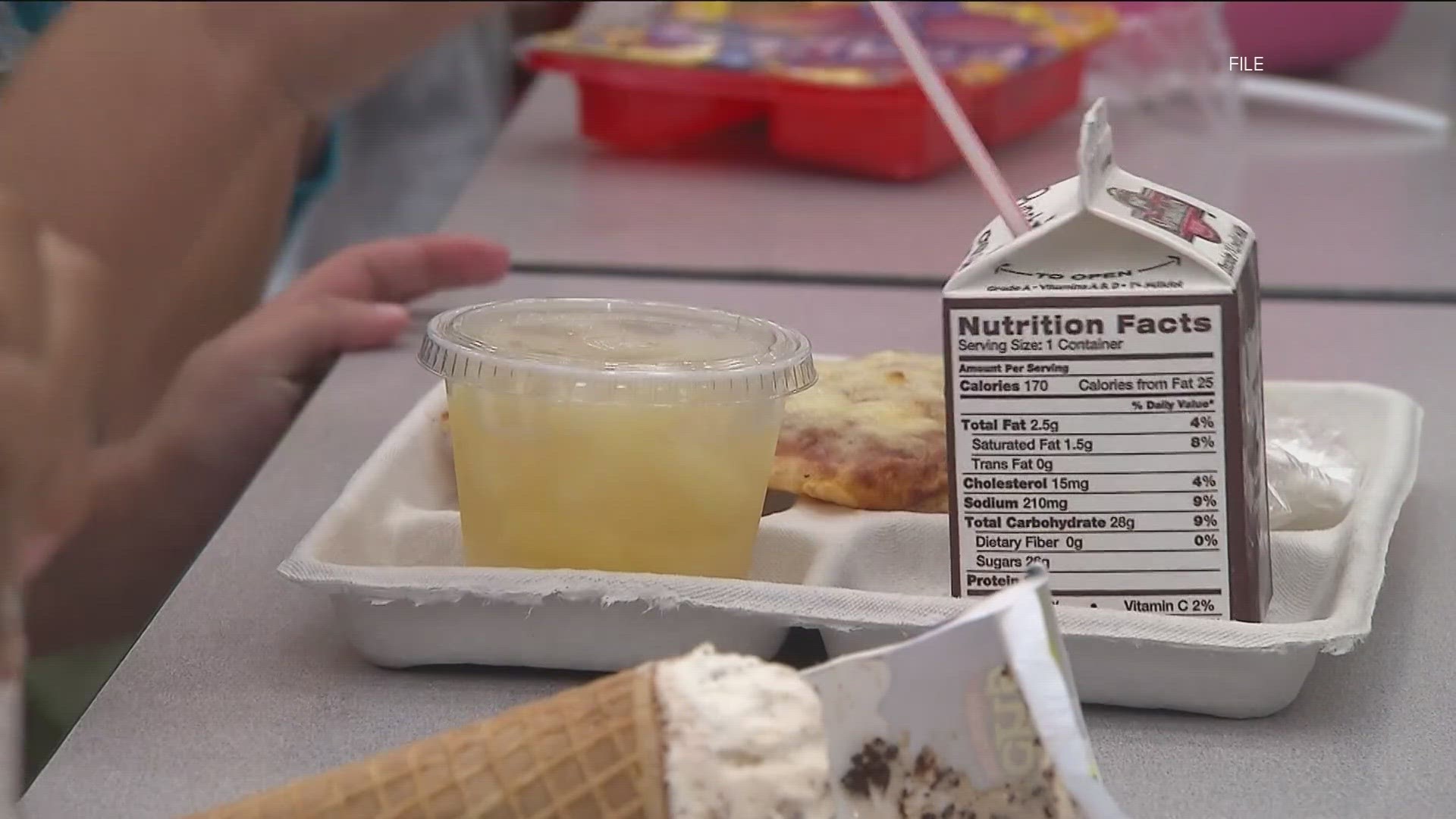ATLANTA — Georgia Gov. Brian Kemp’s office confirms the Peach State will not participate in a new federal program aimed at reducing child hunger during the summer months.
The state’s decision to opt out means rejecting tens of millions in federal funding intended to support low-income families.
The decision by state leaders comes as the USDA launches the new Summer Electronic Benefit Transfer for Children (Summer EBT) program for the summer of 2024. According to the USDA, benefits would supplement existing Summer Nutrition Programs, SNAP and WIC and will come in the form of funds pre-loaded onto cards which families can use to buy groceries. Eligible children, the majority of which are those who qualify for free or reduced lunch, will receive $120 in food benefits over the summer ($40 per month).
While more than 30 states indicated to the USDA they will participate in the federal program this year, Georgia will not.
The decision comes as nearly 64% of Georgia public school students currently qualify for free and reduced lunch, indicating more than 1 million children in the state could have qualified for the benefits the USDA offered. The nonprofit Food Research & Action Center estimates that would have resulted in more than $138 million in benefits for Georgia families this summer, a time advocates say can be detrimental for students dependent on school meals.
11Alive reached out to Gov. Kemp’s office about the decision.
"Ensuring Georgia children have access to a healthy and nutritious meal throughout the year remains vitally important to this administration, particularly when students are out of school for the summer,” Garrison Douglas, a spokesperson for the governor, said via email. “Unlike the many successful programs Georgia already has in place, the most notable being GaDOE's Seamless Summer Option, which alone provided millions of breakfast and lunch meals to students statewide last year, this federal Covid-era EBT program not only lacks basic nutritional requirements and sustainability but fails to address the mission of improving the health and wellness of our children. Therefore, along with our neighboring states, Georgia opted not to participate in the proposed EBT program and instead remains focused on well-established and effective programs that are tailored to address our state's specific needs by providing necessary nutrition and engagement to families and kids."
The Governor's Office pointed 11Alive to several existing programs administered by the state that are designed to support students over the summer including Seamless Summer and Happy Helpings, the former administered by the Georgia Department of Education and the latter administered by the Georgia Department of Early Care and Learning.
While the state would have to cover 50% of administrative costs to implement Summer EBT program, which would mean about $4.5 million annually, the Seamless Summer option and Happy Helpings are also federally funded summer programs. The Governor's Office did not answer 11Alive’s follow up questions about the state’s administrative costs for those programs, nor whether the governor considered using funds from the $11 billion surplus in order to bring the Summer EBT program to Georgia.
While the deadline for states to participate for summer 2024 passed as of Jan. 1, advocates hope state leaders will consider the program in the future.
"Each year Georgia's schools serve about a million students through the National School Lunch Program (NSLP) and when schools let out for summer, those children still need to eat,” Kelcie Silvio, Senior Policy Analyst with Voices for Georgia's Children, said in an email to 11Alive. “Historically, many of those children have been unable to participate in summer meal programs. Summer EBT would be one efficient way to help families put food on the table for their children. Unfortunately, while it may be too late for this year, we are hopeful the state considers Summer EBT for 2025."
The USDA Food and Nutrition Service has been testing the Summer EBT program in various forms since 2011, before Congress made the program permanent in December 2022 as part of the Consolidated Appropriations Act.
In response to Georgia's decision to opt out, Senator Reverend Raphael Warnock shared the following statement with 11Alive:
“Thanks to our state leaders scores of children across Georgia are already scrambling for health care after being needlessly disenrolled from affordable health care coverage last summer, and now these same leaders have decided to deny vital summer nutrition benefits to many of these same children who are most in need. As a kid who grew up in public housing, I know how important federal support can be for families in our state, and few things are more puzzling than denying Georgians the benefits of their own tax dollars at work. Since I entered the U.S. Senate, I have been determined to protect access to federal nutritional assistance for our most vulnerable neighbors, and as a member of the committee charged with overseeing our nation’s nutrition benefits programs, I’m going to remain focused on strengthening these programs and making sure Washington is doing its part to protect Georgia’s children from the scourge of hunger."
According to the USDA’s website, the following states, territories, and tribal nations announced their intent to launch next summer (as of 1/4/24):
- American Samoa
- Arizona
- Arkansas
- California
- Cherokee Nation
- Chickasaw Nation
- Colorado
- Commonwealth of the Northern Mariana Islands
- Connecticut
- Delaware
- Guam
- Hawaii
- Illinois
- Indiana
- Kansas
- Kentucky
- Maine
- Maryland
- Massachusetts
- Michigan
- Minnesota
- Missouri
- Montana
- Nevada
- New Jersey
- New Hampshire
- New Mexico
- New York
- North Carolina
- North Dakota
- Ohio
- Oregon
- Puerto Rico
- Tennessee
- Utah
- Virginia
- Washington
- West Virginia
- Wisconsin

